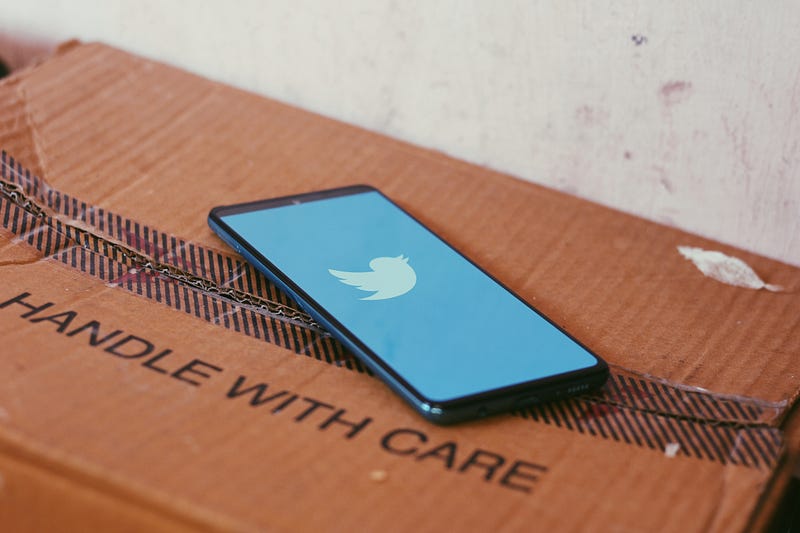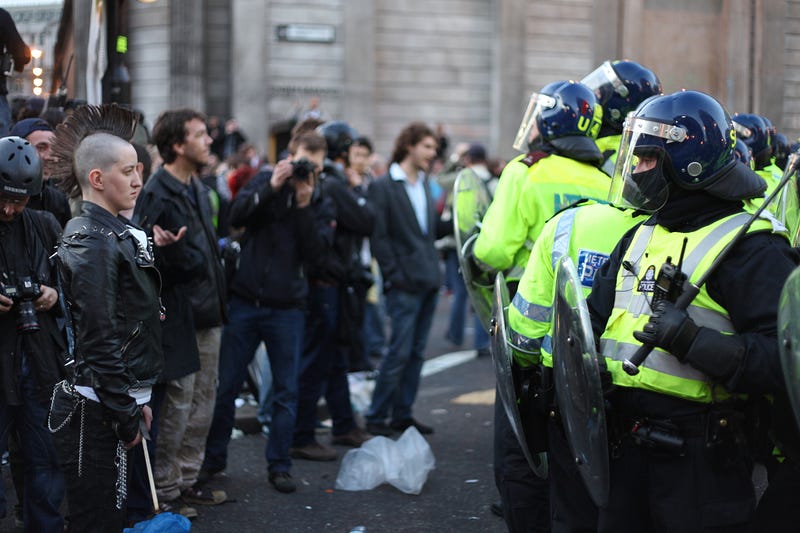The Impact of Social Media Censorship on Society's Values
Written on
Chapter 1: Understanding Social Media's Role in Society
How is social media influencing our mental health and social interactions? These are critical inquiries we should all consider. Research by psychologist Jonathan Haidt has shown that specific social media platforms, particularly among preadolescent girls, have been linked to increased rates of depression and related symptoms since the early 2010s. It's evident that social media significantly affects mental health, especially among younger audiences.

Photo by Ravi Sharma on Unsplash
Platforms like Twitter and Facebook encourage both subtle and overt aggression. Today, reaching a wide audience is easier than ever, allowing unrestricted access to followers. For instance, on Twitter, anyone can engage with a user's entire follower base just by commenting on their posts. This environment makes it simple to insult or undermine someone directly in front of their audience without needing any evidence. In the past, gaining an audience required significant ideas, important messages, or considerable wealth. Now, on Twitter, anyone can exploit another's platform, creating a parasitic dynamic. The anonymity often present reduces the cost of insults and provocations.
Consider how infrequently you witness direct insults in person compared to the frequency of such interactions online. Different social media platforms have varying levels of negativity, but in my experience, Twitter ranks among the highest, surpassing Facebook, Instagram, and YouTube. The issue is that this anger spills over into the real world, contributing to numerous social challenges and divisions we observe today. Twitter's reward mechanisms foster malignant narcissism and conflict, much like how news outlets often prioritize negative stories, as human nature tends to gravitate towards conflict and outrage.

Photo by Yogendra Singh on Unsplash
The implications of this phenomenon are enormous and could disrupt societal norms in ways we have not witnessed in generations. Additionally, the landscape of communication has changed; previously, if someone wanted to share a message, they would gather in public spaces to protest. Today, our communal discussions occur in the digital realm, with platforms like Twitter and Facebook serving as modern public squares. The challenge arises when these platforms enforce censorship based on their own values and interpretations. While they set rules defining violations, their role as judge, jury, and executioner allows for inconsistent interpretations of violence, hate, and harassment.
Recent events highlight this issue; for instance, Jordan B. Peterson faced a ban from Twitter over controversial comments, and Donald J. Trump was also banned in January 2021. While debates about the content of their statements are necessary, the focus here is on the substantial influence these social media companies hold over what can be communicated in our contemporary public forums. This unprecedented power rests with private corporations and a handful of individuals, raising questions about whether we should allow such entities to dictate free speech and establish their own criteria for misinformation. It is troubling to witness rapid shifts in viewpoints on topics like vaccines and masks, with terms that could lead to bans changing frequently.

Photo by Xavier Senente on Unsplash
My intention is not to pass judgment on the appropriateness of these companies' actions but to foster dialogue around these pressing issues. I believe that engaging in respectful and rational discussions is vital for our community's progress and for identifying genuine solutions. Censorship is rarely a viable resolution, and without open conversations about these matters, individuals will continue to retreat into their echo chambers, worsening the situation.
It is concerning that legislators have not mounted a significant challenge to these issues. There is a lack of comprehensive studies aimed at understanding the impact of social media on society, particularly among younger users. This situation resembles the 19th-century onset of pollution as a public health concern. Initially, the consequences of pollution were not fully understood, as it was a novel issue that seemed too expansive to be a serious threat. Through research and policy changes, we have come to recognize the substantial risks pollution poses. While progress was made, it was often too slow.

Photo by Jonathan Harrison on Unsplash
Returning to social media, we find ourselves facing a comparable challenge; we are confronted with a new phenomenon that could potentially wreak havoc on our society, yet there seems to be a lack of urgency in addressing it.